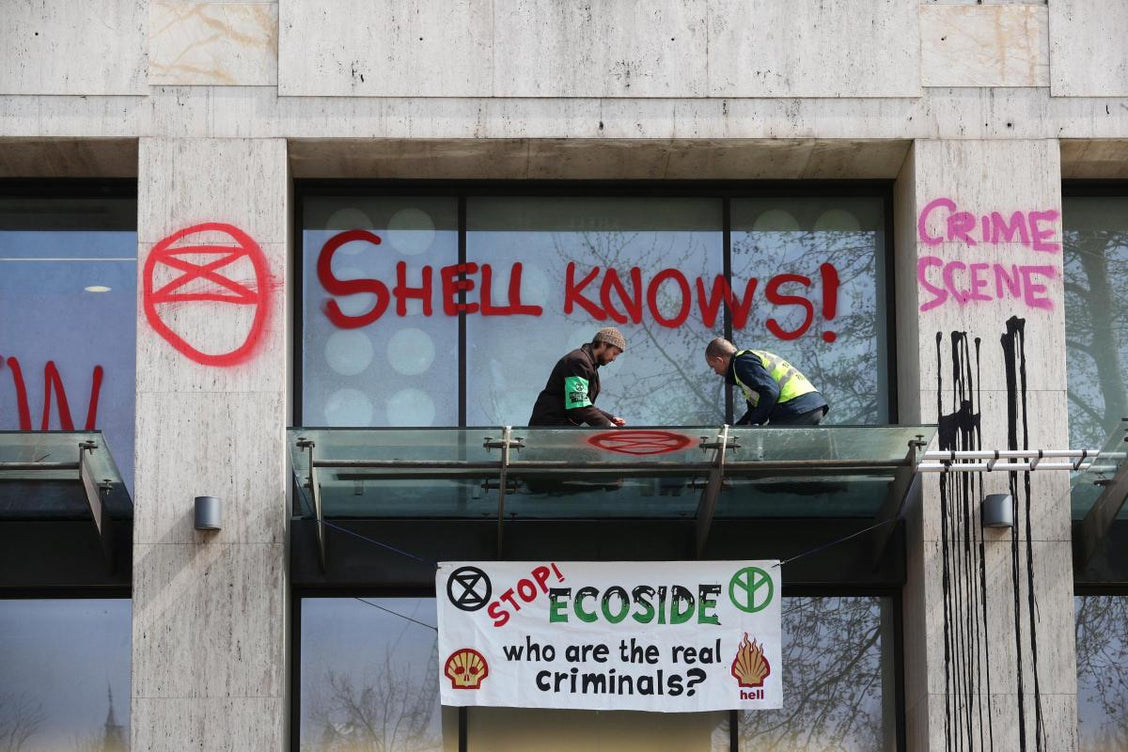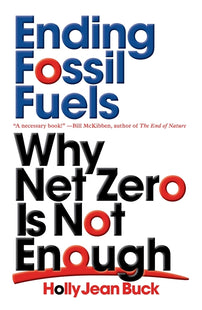In Defense of Sabotage: A response to George Monbiot
Peaceful civil disobedience is not working in the fight against against fossil-fueled climate change. Andreas Malm, author of How to Blow Up a Pipeline, argues that, contrary to George Monbiot's recent claims, the climate struggle requires a diversity of tactics, including property destruction.

In a column published in the Guardian on Friday 28 April, George Monbiot takes issue with my book How to Blow Up a Pipeline. He advances five distinguishable arguments. I will here briefly respond to each.
*
One: the argument from infinity. Monbiot concedes that history is replete with struggles for limited objectives – women’s franchise, abolition of slavery, liberation from colonial occupation – that deployed militant tactics and won. ‘But the revolt against environmental collapse is a revolt against the entire system.’ It is not against fossil fuels solely, but against industrial capitalism in toto. One could take down every single pipeline and coal mine and SUV ‘and discover that we are still committed to extinction’, because there would then be unaddressed ‘soil degradation, freshwater depletion, ocean dysbiosis, habitat destruction, pesticides and other synthetic chemicals’, each affliction ‘comparable in scale and impact to climate breakdown.’ We are here fighting not fossil capital but ‘all capital’ (my emphasis). Ergo, sabotage and similar militant tactics against fossil-fuel property are futile and misplaced.
There are at least four problems with this argument. First, if Monbiot would want to find examples of struggles in history that aimed at capitalism in its entirety, rather than this or that local injustice (if we accept the notion that something like slavery falls into this category), there seems to be only one tradition on offer: that of revolutionary socialism. Now it hasn’t exactly always stuck with peaceful protest either. The notion that anti-systemic struggles have less need for militant tactics than single-issue campaigns does not quite conform to the record from the past two centuries.
Second, Monbiot’s own list is, of course, incomplete. One could go on and take down every single trawler and bulldozer and pesticide factory and discover that we are still being herded towards extinction: consider merely the 10,000 nuclear warheads stockpiled on Earth. They do not exhaust the woes and worries that ought to be tackled. Palestine remains occupied. Exploitation in sweatshops is as rampant as ever. The mining of cobalt in Congo relies on working conditions approximating slavery, and so on and so forth: the fully capitalist Earth radiates disaster triumphant. What do we do with this insight? If the infinity of problems is a reason to rule out sabotage against fossil-fuel property, then this must extend to most other tactics and campaigns too, until one reaches the point where every form of action is by definition in vain.
Third, there is something odd about equating climate breakdown with these other drivers of environmental degradation. Monbiot has a habit of – apparently on an impulse – declaring some other ecological problem worse than global heating: in 2017, he decided that industrial fishing was more urgent. Where these impulses stem from I don’t know, and I also don’t know what scientific evidence could back up the claim that fishing or pesticides have the same capacity for comprehensive destruction of the biosphere as large-scale fossil fuel combustion. I consider this bordering on a trivialisation of the climate problem.
[book-strip index="1"]
Fourth, I have never, as Monbiot alleges, suggested that ‘the struggle against fossil fuels’ is the only one in need of waging. (All hail Palestine Action, to take just one example from Monbiot’s England.) Nor have I harboured the illusion that the appearance of sabotage on the streets will instantly make dominant classes ‘surrender the economic system’. All I have argued is: that the struggle against fossil fuels is of pressing importance; that the situation on the climate front is now so dire that the movement needs to consider going beyond absolutely non-violent civil disobedience; that we should experiment with property destruction within a diversity of tactics – something no movement challenging deeply entrenched dominant class interests has ever done without – and that we need to inflict real material costs on fossil capital, as part of a groundswell of discontent that alone, it seems, can shake business-as-usual out of its ruts. I fail to see how the argument from infinity weakens this case. Surely the liberation and saving of humanity and all other species must begin somewhere.
*
Second: the argument from certainty. Monbiot contends that escalated resistance against fossil capital can be advisable only if we know that it will succeed. ‘If you are holding a virtual gun to someone’s head, you need know exactly what you are demanding and whether they can deliver it.’ ‘If you are going to take a physical shot at capitalism, you had better not miss.’ ‘You need to be pretty confident that the strategy will work. I have no such confidence.’ But is such confidence a requirement? If militant tactics are legitimate only on the precondition of certainty about their efficacy, they would have to be excluded in most if not all cases. Rare is the resistance launched in perfect knowledge of victory. In fact, much resistance in the past and present has been undertaken against overwhelming odds, with nothing resembling a guarantee of success. Just consider, again, the Palestinian resistance, in all its multifarious forms: on Monbiot’s criteria, it should have been called off long ago. Nor, I would wager, did the enslaved people in Haiti gathering at Bois Caïman on the night of 14 August 1791 know for a fact that they would win – how could they possibly? Thankfully, they rose up despite the uncertainty that pervades every moment of rebellion.
What is required is something else: knowledge that the tactics we have tried so far have been insufficient, and reasons to believe that escalation can further the cause. The knowledge pertains to the need to try something more. The condition of the present, obviously, is that no one knows what exactly, if anything, will take us out of this mess. But we do know that gently asking for politicians to listen to the science has been very far from enough. It would seem that every route remaining is fraught with the risk of further failure, but that can hardly, in and of itself, be reason to stay in the same square where we’ve been protesting for years if not decades. Yes, any act of sabotage is a wager, any mass action subject to trial and error. Precisely when a situation is bad, it’s this kind of leap into the unknown that must be embraced.
*
Third: the argument from counterproductivity. Monbiot worries that it would be hard to gain the support of people ‘if we simultaneously engage in violent conflict with those we seek to swing.’ Granted, this is one reason we should not jump on subway trains and kick commuters in the head. Probably we might also want to refrain from indiscriminately blocking working people on their way home or randomly throwing substances on paintings. If we elect to undertake violent action, it should be against sources of the most egregious emissions – say, SUVs, private jets or new pipelines. These dead things that cause people to die do not belong to those ‘we seek to swing.’ They belong to the class enemy. The art of property destruction in a rapidly warming world is the art of targeting things the destruction of which would not cause people at the bottom of the pile to cry.
*
Fourth: the argument from repression. ‘Not many people’, Monbiot predicts, ‘will get away with it’ – the powers of surveillance are now so ubiquitous that sabotage will send activists into prison for decades. He points to the case of two comrades from Just Stop Oil sentenced to between two and three years merely for scaling a bridge. But while the problem of repression is all too real, the idea that sabotage should be rejected because of it seems to me unfounded, for many reasons. I have discussed this problem elsewhere – e.g. in a previous blogpost – and to avoid repetition, I shall merely point to two.
[book-strip index="2"]
First, a turn towards sabotage would require a break with the protocol for interacting with the repressive state apparatus so far upheld by the British wing of the movement in particular. In the tradition of Extinction Rebellion and its offshoots, it has been a virtue to get arrested; accepting accountability to the point of waiting for the cops has been considered an integral part of a civil disobedience action. Apart from all other reasons this might be a bad idea, it is clearly unsustainable if activists graduate into property destruction. We can’t blow up a pipeline and then sit on the site until we all end up in jail (although some of us might want to – see the film How to Blow Up a Pipeline). Tactical diversification requires that the desire for arrest be abandoned. This is of course not a foolproof solution to the problem of repression – we might fail in efforts to elude the cops – but it’s a necessary beginning, and one not without precedents.
Hence the Tyre Extinguishers strive to disarm as many SUVs as possible without getting nabbed, so far with resounding success. Or, to take an example from the opposite end of the spectrum: the unceasing campaign of sabotage against the Coastal GasLink pipeline in British Columbia has outwitted the cops night after night, with, so far, to best of my knowledge, no breakthrough for the latter in terms of arrests. If you want to avoid repression, it might be more effective to engage in property destruction and hide your identity behind a mask or darkness than to sit still on the asphalt in a Gandhian blockade. And if, God forbid, your covers are blown by the cops, it might still be the case, as Monbiot himself recently wrote, that ‘the protesters condemned as criminals today will be the heroes of tomorrow.’
Second, the intensified repression Monbiot fears – killing of climate activists, in the US in particular – is already underway. We now know that Tortuguita was executed with 57 bullets by the cops. It would seem that Monbiot’s advice to the movement against Cop City would then be to stand down and go home. I personally think this is a more appropriate answer: continuous, stepped-up mass action against the murderous police force bent on destroying the Weelaunee Forest. Indeed, activists on the ground in the US have reacted to Tortuguita’s execution in a way opposite to Monbiot’s: if they kill us, we go after their property. Natasha Lennard better understands the logic of these events, when she observes that ‘the crackdown on Cop City protesters is so brutal because of the movement’s success’ – so, dear comrades in this glorious movement: keep going.
The same applies to the case of Les Soulèvements de la Terre. Serge Duteuil-Graziani remains in a critical condition after the cops shot him during the mass action in Sainte-Soline on 25 March. Should we honour him by suspending the struggle, or reverting to the peacefulness of old? Again, I think this is a more fitting response: keeping the fire burning under the feet of the dominant classes and their armed wings. These two movements, in the US and France, have several things in common. They have successfully articulated the struggle for climate justice and ecology – including resistance against pesticides, in the latter case! – with social struggles of race and class; the ferocious reaction from the repressive state apparatuses is an index of the challenge they pose; their determination and resolve have so far been unwavering. All hail the people who dare to stay on the frontlines: they are the ones who show us a future.
*
Fifth, the argument from courage. Monbiot himself is not prepared to engage in any sabotage. Therefore he won’t recommend that anyone else does it either. There is also a subtext in his column – although I might misread it, but I think I do detect one – insinuating that I, personally, am not prepared to do the things I ask others to do. Monbiot refers to the ‘mild actions’ I describe in the book – ‘letting down the tyres of SUVs with mung beans, helping to breach two fences’ – and apparently considers this an exhaustive list of actions I have personally participated in and/or would be ready to undertake. There is the innuendo that I am like a general sending hapless young people into a war, playing a parlour game of sorts, perhaps while reading and writing my books. I shall leave this uncommented, for obvious reasons that have to do with the fourth argument above. Suffice it to say that it’s a fallacy to conclude that because George Monbiot cannot imagine himself seriously committed to revolutionary praxis, other people also cannot – and should not – have such commitment.
[book-strip index="3"]
*
In the slightly more than two years since How to Blow Up a Pipeline was published, sabotage and other militant tactics within the climate movement have perhaps not exploded, but certainly taken off. A fresh survey of this rapidly-evolving scene just appeared in Politico (although under a bizarre headline: as though the tyre of an SUV is a civilian – a headline that could only be invented by someone who has never been in a war zone and doesn’t know what targeting civilians actually means). Another one came out in Le Monde; in fact, it has become hard to keep up with developments. Now more continental than insular, the cutting edge of the European climate movement – Les Soulèvements de la Terre, Ende Gelände, End Fossil: Occupy! – has openly embraced sabotage as a tactic.
As I have said many times, I take zero personal credit for these trends. They evidently haven’t developed because I wrote a book of such tremendous earth-shattering qualities. My book just happened to appear – as is sometimes the case – when the ideas it propounded were in the air. After the wave of 2018–19, some wings of the climate movement in the global North have started moving towards militancy, for reasons entirely independent of my writings: above all, the relentless disaster of business-as-usual itself. An assessment of these experiences from the past couple of years would require another, far longer text than this one. But we can be sure about two things. First: the activists – from the Tyre Extinguishers to the saboteurs of the Coastal GasLink pipeline; from the battle of Lützerath to the battle of Sainte-Soline; from Atlanta to Lisbon and beyond – rebut through their practise all the five arguments of Monbiot: those from infinity, certainty, counterproductivity, repression and courage. Second: we have only just seen the beginning.
*
Andreas Malm’s next book, with Wim Carton, is Overshoot: Climate Politics When It’s Too Late, out from Verso next year.
This text benefitted from the incisive comments of Jana Tsoneva.



